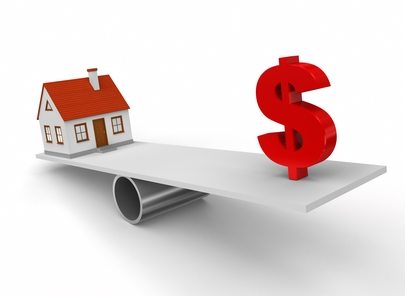Remember when we would read the morning paper and then maybe catch the evening news on the tele?
That was about it, when it came to the news.
Now we’re barraged with it 24/7.
According to a study by the American Psychological Association, it has two-thirds of Americans stressed out over the future.
Therapists have even coined the term ‘headline stress disorder’, to describe this condition.
Being tuned in to the 24-hour news cycle can make you feel overwhelmed.
And this goes double for markets. One negative jobs report or a tweet from the president can send markets tumbling.
It’s easy to get caught up in all the emotions of the day.
But rather than get caught up in all the daily news, take the longer-term view.
Stock markets go up and down all the time. Most recently, this year in February, the Dow Jones suffered its biggest point drop in its 132-year history.
Or do you remember the January 2016 panic, when US equity markets recorded their worst ever start to a year .
Or a little further back, the panic of August 2015? When the Dow plunged an unprecedented 1000 points at the open.
Here’s how those panics look on the longer-term chart of the Nasdaq 100.
Source: Optuma
[Click to enlarge]
Markets have never collapsed due to low interest rates
Those panics days hardly register in terms of the longer-term chart. And whilst these emotional news events bring out all the bears, markets were most unlikely to collapse from them.
And here’s why.
First of all, markets cannot completely collapse, whilst everyone is expecting one. Markets just don’t work like that.
Markets can only collapse when everyone is fully invested and there’s only blue skies ahead.
A classic example of that would be the Royal Bank of Scotland.
The bank that forecast cataclysmic events in 2016 and told clients to ‘sell everything’ in January of that year, was completely blindsided by the events of 2008. The only reason the bank is still around is because of a taxpayer funded bailout to the tune of £45 billion.
The bank’s call in 2016 now looks silly. If clients took that advice, they sold just before the strongest two-year bull run the market has ever seen.
Another reason markets have been unlikely to collapse, is that history shows that markets have never collapsed from historically low interest rates. It’s never happened before.
History shows that recessions occur way after the Fed starts its tightening cycle, and not at the beginning.
It’s roughly 3 ½ years on average, after the Fed starts to raise rates, that a recession is likely to occur.
The Fed started raising in December 2015, so that gives you something to watch for come mid-2019.
We might get a slowdown then of sorts, but don’t expect a major collapse. That’s because those financial problems of the day won’t be land based.
A collapse in the property market is not coming
You see 2008 was not a financial crisis, it was a land-based crisis.
Go back and study your market history.
The major market downturns occurred in 2008, before that ‘91–’92, and before that around ’73–‘74.
History shows us that the US market has major land-based downturns, every 18 to 20 years or so. Punctuated with a mid-cycle slowdown in between.
If you know this cycle, you can broadly forecast what is coming next for the economy and time it all to your advantage.
History shows, the biggest gains in real estate occur in the latter half of the cycle.
Technological innovation, increasing population, the unwinding of banking regulations, massive tax cuts, huge infrastructure projects. All these will feed into higher land prices.
This real estate cycle is slowly starting to build.
View the economy through the lens of the real estate cycle and you’ll see a clear rhythm. There’s no randomness about it. The economy just goes through the same boom-bust cycle every 18–20 years.
So there’s no need to feel overwhelmed and get caught up in the financial news of the day.
Follow the longer-term monthly charts and bring the bigger picture of the real estate cycle into view.
Brush aside the so-called economic experts who tell us a collapse is imminent. A collapse just isn’t coming — at least not yet. So stop worrying and think about how you can start investing effectively and take advantage of the current real estate cycle.
Terence Duffy
